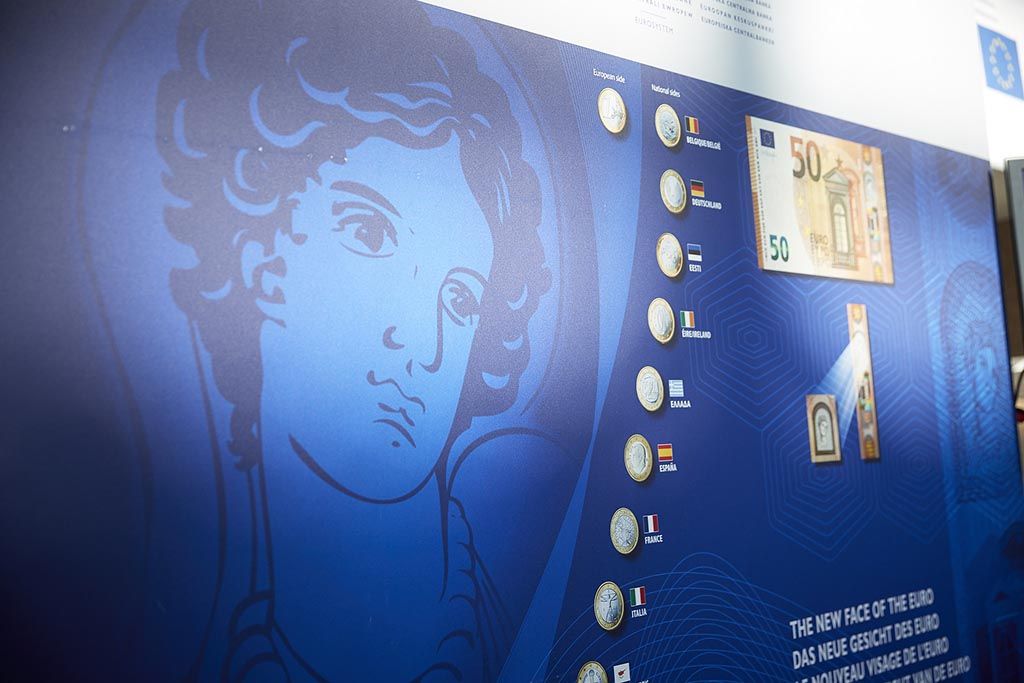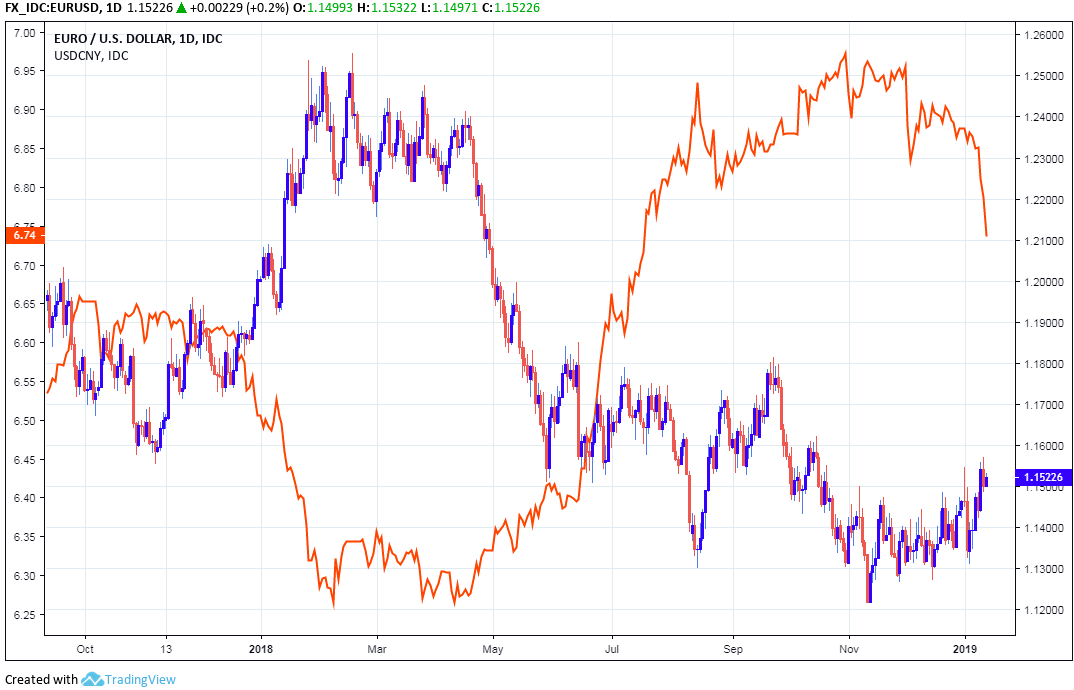The Euro Follows Renmimbi Higher as Trade War Optimism Trumps Economic Concerns
- Written by: James Skinner
-

© European Central Bank
- EUR advances broadly on coat-tails of China's Renmimbi.
- As markets cheer negotiators' optimism over "trade war" talks.
- But the ECB policy outlook has grown murkier so far this year.
The Euro advanced against a weakening Dollar Friday as it followed China's Renmimbi higher in response to optimism about progress in the U.S-China trade talks, which is overriding mounting concerns over health of the bloc's economy.
China's Renmimbi was on its front foot Friday, scoring large gains over almost all its rivals as markets cheered Thursday's claims by officials that talks have laid "the foundation for resolving issues" around international trade over the coming weeks.
Negotiators from both sides are expected to remain in contact over the coming weeks, although a deal to end the trade war is needed before March 01 to avert an automatic increase in the 10% tariff charged on $250 billion of goods exported to the U.S. each year.
However, the threat posed by the trade war to China and Europe's economies is significant so any signs that it could be coming to a close would always be welcomed by the single currency.
"US-China trade talks appear to be heading towards a constructive, risk-positive result. USDCNH is at its lowest level since August as China has pursued additional monetary and fiscal stimulus, lowering the CNH risk premium. China proxy trades (like EURUSD and AUDUSD) should benefit," says Hans Redeker, head of FX strategy at Morgan Stanley.
The Eurozone was hobbled in the final quarter of 2018 by mounting fears of a possible escalation in the tariff fight between the world's two largest economies, which sent industrial production tumbling across the bloc's major economies.
The latest example of trade fear hitting factories in the Eurozone was revealed Friday when official data showed Italian industrial production declining by -1.6% for November, extending a -0.1% decline from October.
"Poor November industrial production data combined with soft confidence numbers markedly increase the chances of Italy entering a technical recession in 4Q," says Paolo Pizzoli, an economist at ING Group. "We are now pencilling in a second consecutive 0.1% QoQ GDP contraction in 4Q18, which would mark the start of a technical recession."
Italy's figures may also have been impacted by Rome's confrontation with the European Commission, which reached a crescendo that month. However, that alone is unlikely to explain all of the decline.

Above: EUR/USD rate shown at daily intervals, with USD/CNH rate (orange) overlay.
The Euro-to-Dollar rate was quoted 0.14% higher at 1.1524 Friday despite the Italian data, and is now up by 0.5% for 2019 after falling nearly 5% last year.
"EUR/USD has broken out of its 1.13-1.15 range, a move which came as the USD/CNH rate fell and just before the end of trade talks was confirmed. The Euro's only independent sources of strength are valuation (against the Dollar, not in trade-weighted terms), and positioning," says Kit Juckes, chief FX strategist at Societe Generale, in a note to clients Thursday.
The USD/CNH rate was -0.70% lower at 6.7400 and has fallen -1.94% since the beginning of January. Price action came alongside a broadly weaker Dollar.
Above: EUR/USD rate shown at weekly intervals, with USD/CNH rate (orange) overlay.
French industrial production fell by -1.3% in November, according to data released on Thursday. Those numbers may have been impacted by the so-called yellow vest protest.
"Eurozone data remains dreadful," says Daragh Maher at HSBC. "The ECB meeting on 24 January could be a problematic one for President Draghi given his previous forecasts of a bounce in activity which is once again failing to materialise, and core inflation still languishing near zero."
German industrial production fell -1.9% in November, according to data released earlier in the week. The data was impacted by the implementation of new European Union rules on emissions testing of cars but also by the tariff conflict.
The combined effect of the above data, as well as other economic figures released during recent weeks, has been to darken the European Central Bank (ECB) policy outlook, which is a negative for the Euro, although price action suggests the market believes this damage can be reversed by an agreement that ends the trade war.
Growth is important for the European Central Bank outlook because policymakers need the economic expansion to be and remain consistent with a gradual return of the consumer price index toward its target of "close to but below 2%" if they are to meet market expectations for interest rates.
The single currency's appeal to investors is hinged on the idea the ECB will begin raising its interest rate once "through the summer of 2019".
"We are revising our forecasts for economic growth in the euro-zone and now expect GDP to increase by only 1% this year and a bit less in 2020," says Andrew Kenningham of Capital Economics. "The ECB is unlikely to raise policy rates at all this year or next, and will thus miss out entirely on the global tightening cycle."
Advertisement
Bank-beating exchange rates. Get up to 5% more foreign exchange by using a specialist provider to get closer to the real market rate and avoid the gaping spreads charged by your bank when providing currency. Learn more here
